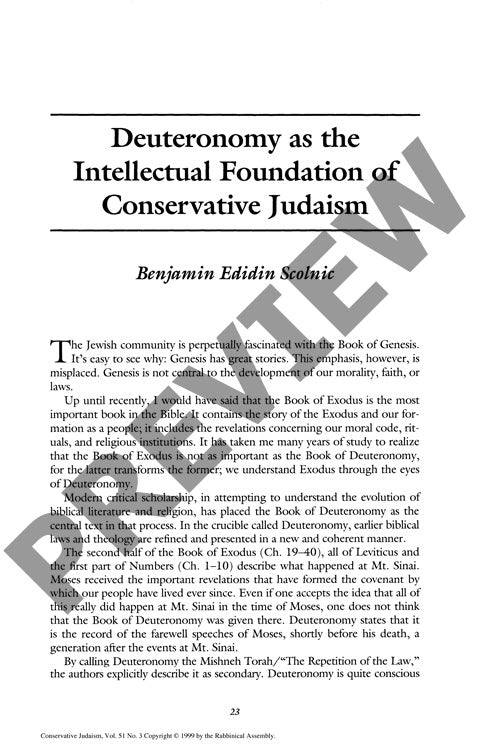Deuteronomy as the Intellectual Foundati
Couldn't load pickup availability
The Book of Deuteronomy stands as a revolutionary text that fundamentally reshaped biblical law and theology, providing the intellectual bedrock for Conservative Judaism's understanding of religious evolution. Through systematic transformation of earlier biblical legislation found in Exodus, Leviticus, and Numbers, Deuteronomy demonstrates how Jewish law adapted to meet changing societal needs while preserving core religious principles. Textual analysis and comparative methodology reveal four critical areas of legal development: Passover observance, animal slaughter regulations, slavery legislation, and the codification of the Ten Commandments. As religious practices became increasingly centralized, Deuteronomy humanized existing laws while expanding their scope from tribal customs to nation-state governance. The evolution of slavery laws particularly illustrates this progression, moving from the tribal-focused Covenant Code through clan-oriented Levitical regulations to Deuteronomy's broader societal perspective - showcasing moral advancement despite textual tensions. Analysis of the Ten Commandments further reveals that the familiar Exodus 20 version likely represents Deuteronomic editorial choices rather than the original Sinai revelation. By documenting Deuteronomy's deliberate reinterpretation of earlier texts, this investigation provides compelling evidence that Jewish law has always been dynamic, supporting Conservative Judaism's position that authentic religious tradition inherently involves growth and adaptation. This scholarly approach challenges Orthodox concepts of unchanging tradition while affirming the dynamic nature of divine will as expressed through evolving religious law.

More Information
-
Physical Description
-
Publication Information
Published 1999
ISBN
-
Publication Credits
Benjamin Scolnic

